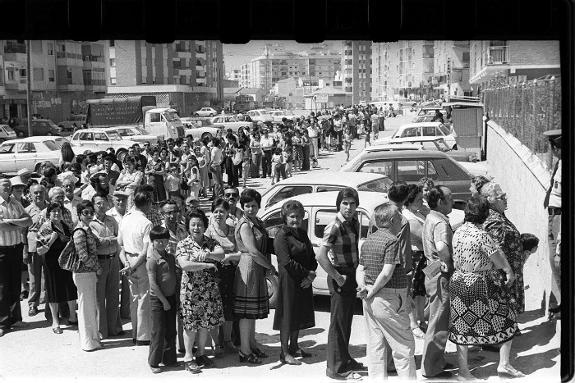15 June 1977: Spain holds first democratic election after death of Franco
This was the first democratic election since February 1936, before the Civil War, and it was difficult to tell in advance which parties would be given the most support
Debbie Bartlett
Friday, 15 June 2018, 11:36
June 15th 1977 was a turning point in Spanish history as the people went to the polls to vote for a government for the first time after a dictatorship that had lasted nearly 40 years. General Francisco Franco had ruled the country with an iron hand until his death in 1975, so the transition to democracy and restoration of the monarchy was an exciting but still very tense and uncertain period.
This was the first democratic election since February 1936, before the Civil War, and it was difficult to tell in advance which parties would be given the most support.
The three main parties were the centre-right UCD, social democrat PSOE, right-wing Alianza Popular (the forerunner to today's Partido Popular) and the Communist Party of Spain.
A decree issued by acting prime minister Adolfo Suárez had established a proportional representation system corrected by the application of the d'Hondt Method for the Congress of Deputies, with two MPs for each province. A total of 350 seats were up for grabs.
For the upper house, the Senate, there was to be a majority electoral system with open lists and 207 seats, of which up to 41 could be designated by the King.
Turnout for this all-important election was 78.8 per cent, and would probably have been higher had there not still been fears about repercussions if it were discovered which way people had voted; the threatening shadow of the Franco dictatorship still hung over much of the population. Even so, that was still the second highest turnout in any general election in Spain since.
When the results came in, Adolfo Suárez's UCD party had won the highest number of seats, 165 of the 350, and he became Spain's first democratically elected prime minister after the dictatorship.
The second party was PSOE, led by a young and charismatic Felipe González, with 118 seats, and third was the PCE, the Spanish Communist Party, with 20 seats.
The AP party, led by former Franco minister Manuel Fraga, only won 16 seats, as Spain definitively turned its back on its decades of repression.
Spain still had a long way to go. For example, after the 1977 election there were only 21 female MPs. Now there are 137, and new prime minister Pedro Sánchez Castellón has appointed 11 women and just six men to his cabinet.
There were radical changes to everyday life after democracy was re-established. Society became more open and free, women were given back rights which had been taken from them by the Franco regime, and Spain began its other 'transition period', towards the modern country it is today.


Comentar es una ventaja exclusiva para registrados
¿Ya eres registrado?
Inicia sesiónNecesitas ser suscriptor para poder votar.